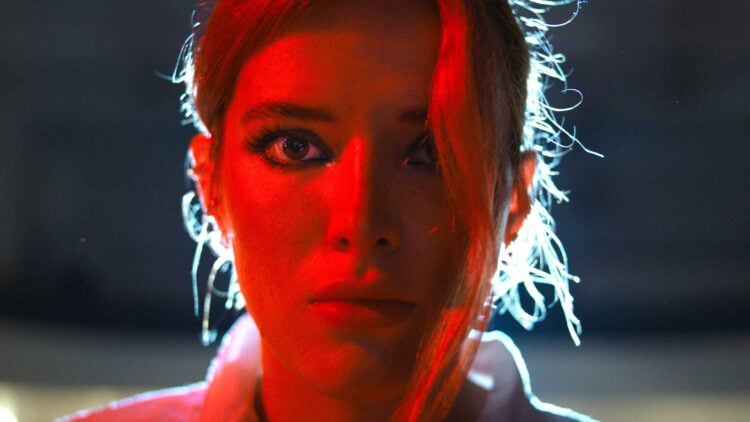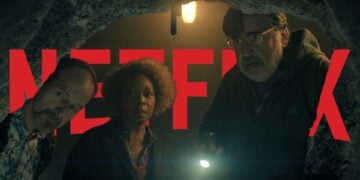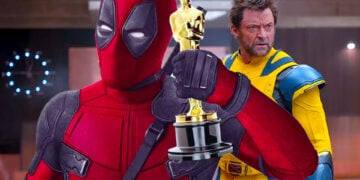Saint Clare isn’t what anyone expects. The film based on Don Roff’s novel Clare at Sixteen isn’t what many readers referred to as the teenage Dexter Morgan or Patrick Bateman. It’s funny. It’s tragic. It’s confusing.
So, what is Saint Clare about? Good question. There’s a lot going on here. Teenager Clare Bleecker (Bella Thorne) attends Catholic school and lives with her grandmother, Gigi Newberry (Rebecca De Mornay), in a small town, but she’s also a serial killer, putting down people who do very bad things. Clare discovers a link between a group of missing girls and begins her own investigation after the authorities fail to act. This isn’t the only issue she needs to deal with, as Mailman Bob (Frank Whaley) – one of Clare’s victims from the past – resurfaces in her life as the embodiment of her conscience. Then, there’s Detective Rich Timmons (Ryan Phillippe), who keeps a close eye on Clare and threatens to uncover her extracurricular activities. As mentioned above, there’s a lot happening here.
The original draft of Saint Clare was penned by Guinevere Turner, who also wrote the screenplay for American Psycho. Turner’s influence lingers throughout the scenes, especially in the black comedy aspects of the story. However, director Mitzi Peirone did her own pass on the story, highlighting the strong Joan of Arc comparisons whereby Clare can be viewed as both a saint and sinner, depending on how the viewer perceives her.
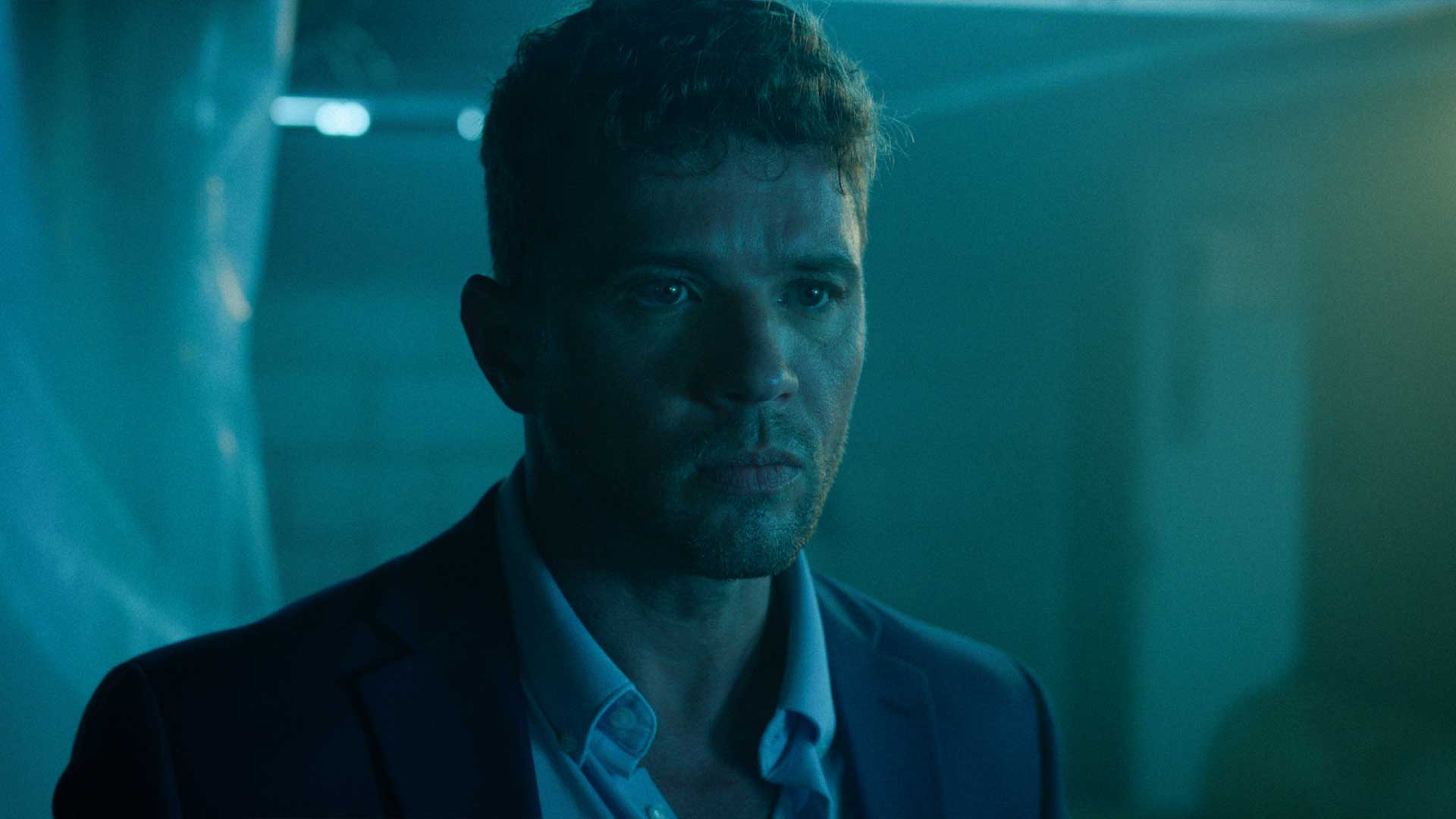
At critical points in the movie, the two versions of Saint Clare clash with each other. Turner’s dark comedic touch can be felt in moments when Mailman Bob appears as Clare’s conscience. Bob adds levity to the conversations à la Patrick Bateman monologuing to himself in American Psycho, but he also detracts from the more serious elements that come from Peirone’s vision. It’s an experimental decision to visually showcase the dissociation of Clare’s personality, though its execution creates a jarring experience for the viewer because of the seesawing tone that baffles the viewer. Should you take it seriously? Is it supposed to be funny? No idea.
Where Saint Clare succeeds, though, is in the standard serious moments, allowing Bella Thorne the opportunity to showcase the conflict of the character on screen – and without any ghost sidekicks along for the ride. Thorne crafts a complex but sympathetic character for the audience to get behind. Sure, she’s a serial killer, but she targets sexual predators and all-round bad men in the neighborhood – hardly anyone is about to shed a tear for them, so good riddance and thanks for the assist, Clare. Without question, this movie is Thorne’s vehicle to drive, and when she’s given the chance to act – without all the experimental bells and whistles – she convinces and adds dynamic layers to Clare.
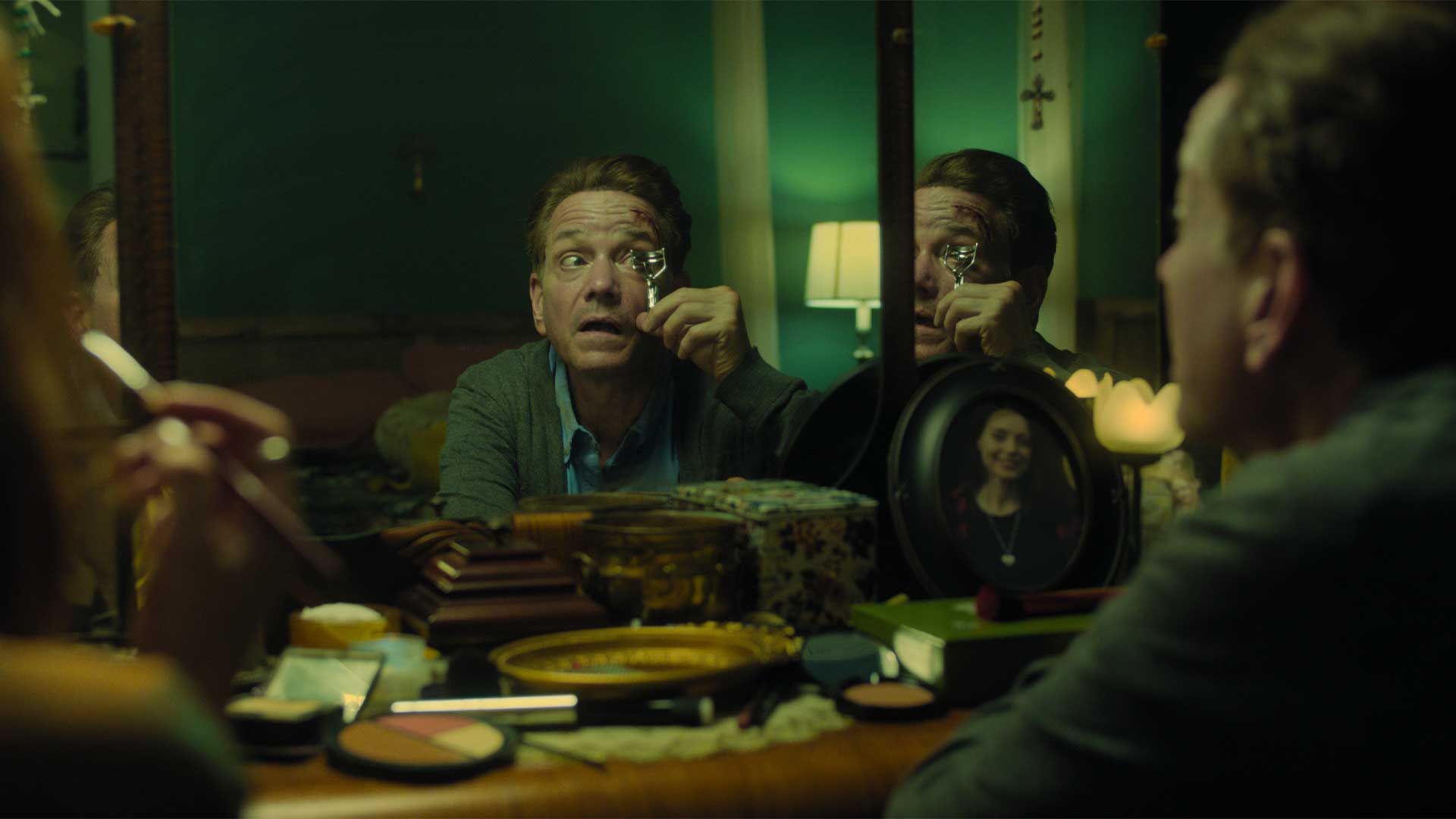
While the main plot of Saint Clare revolves around Clare coming to terms with her actions and attempting to uncover the sinister plot in her town, the subliminal text of the film proves to be far more thought-provoking and compelling. Peirone explores how so many women go missing or experience violence, but the male members of society fail to act, often protecting the perpetrators or keeping their secrets. It’s a societal pandemic, and Saint Clare touches upon this harrowing network of abuse that’s enabled through silence or inaction. It’s these moments and discussions when the film comes alive, making you wish that more time had been dedicated to this exploration rather than Clare’s chats with Bob.
Peirone possesses a striking visual language, creating a film that looks and feels different from everything out there. It becomes even more impressive when you find out that the shoot for Saint Clare was only 15 days. While the film looks great and takes big risks, it suffers from an overly experimental approach. There’s too much happening and too many conflicting tones rattling about here. Ultimately, this is a case where keeping it simple would have resulted in a much better movie overall.
RELATED: Off the Grid Movie Review – Josh Duhamel’s MacGyver-Esque Action Flick Entertains
The Review
Saint Clare
Saint Clare collapses under the weight of its own ambition
Review Breakdown
-
Verdict

